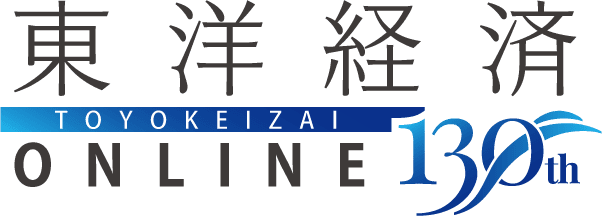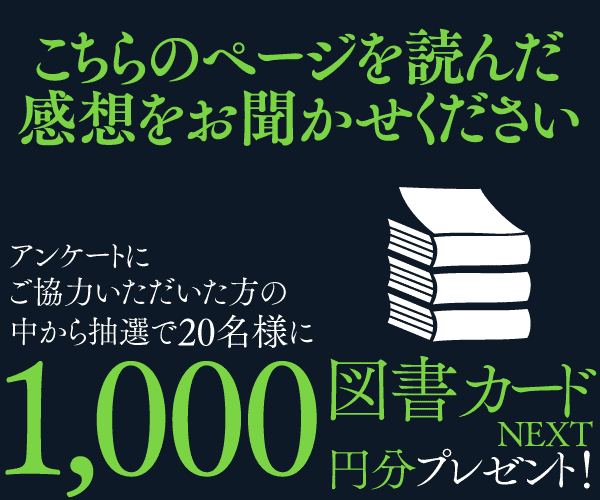This is the place for companies to find human resources with doctoral-level qualifications Changing society with a new human resources development program
University of Tsukuba
Program in Empowerment Informatics
Development of futuristic robots that provide assistance in medical welfare
The study of empowerment informatics is the study of informatics that supplements human functions, works in harmony with people, and expands the human function. The Program for Leading Graduate Schools is seeking to nurture the type of individuals who are able to create systems that empower people. For this purpose, the program is offering unique and distinguished curriculums based on the goal of developing the following three abilities in its students: ability to think beyond their own field of expertise; ability to make appealing presentations; and the ability to perform at the frontlines.
Koichi Murata transferred to this program in April 2014 from the third year of the doctoral program. He completed the program this March, and was hired by Shimadzu Corporation, which is a major manufacturer of analysis and measuring equipment, and which also has a strong record in producing medical, aviation and industrial equipment.

Actuation Group
Robotics Unit
Technology Research Laboratory, Shimadzu Corporation
“From the time I entered the Graduate School of Systems Information and Engineering at the University of Tsukuba (graduate program), my dream for my future was to have people around the world use and enjoy products and technologies that I had worked on in terms of research and development. I particularly wanted to study cybernics (a new domain wherein people, robots and information systems form a complex fusion) under Professor Yoshiyuki Sankai of the Graduate School of Systems Information and Engineering, and work on the research and development of medical welfare technology at a company after finishing the program. Through this program, I was able to give presentations at numerous international conferences, and also participated in various contests. I think it genuinely improved my ability to give good presentations. Also in this program, I conducted research by forming a team with specialists not only in informatics and engineering, but also in a diverse range of fields that included art, psychology, neural science, clinical medicine, nursing science and even business. I also had the opportunity to watch neurosurgery being performed. I don’t think I would have had such opportunities if I had not participated in this program. I would like to make use of the knowledge and experience that I gained through this program and become a researcher who is able to contribute to society from a global perspective.”
The Robotics Unit at the Technology Research Laboratory of Shimadzu Corporation is a new organization that was launched in April 2017 by upgrading their previous System Control Unit. The actuation group leader of this unit (chief researcher), Toyoyuki Hashimoto, who is Murata’s direct supervisor, commented as follows.

Group Leader (Chief Researcher)
Actuation Group
Robotics Unit
Technology Research Laboratory, Shimadzu Corporation
“Our corporate mission is ‘Contribute to Society through Science and Technology.’ It is essential that we have an advanced level of expertise, but we cannot produce products with that alone. For example, even if we look only at the robotics unit, there is a group that works on actuation (activation & control), as well as a group for sensors. Thus, you need the ability to bring the different people in the team together. The company hires a number of PhDs every year. This year was the first time we welcomed someone who had completed a Program for Leading Graduate Schools, and I am already impressed by Murata’s strong communication abilities, his expertise, and his ability to see things from multiple perspectives in order to understand different values. It is very reassuring to know that such programs at different universities are developing human resources that are able to answer the needs of industry and of society. I look forward to seeing this program produce new global leaders that are sought after at the international level.”
Tohoku University
Interdepartmental Program for Multi-dimensional Materials Science Leaders
Developing people who will lead the field of materials & substances by drawing on experience gained abroad and in the private sector
The main feature of the Program for Leading Graduate Schools at Tohoku University is that students conduct three types of internships—within the program, outside Japan, and in the private sector—for approximately three months each.
Atsushi Okada, who is in his third year of doctoral studies for this program, is conducting research in the field of spintronics, which is attracting attention for its application in non-volatile magnetic memory (memory that preserves data through magnetics without the use of electricity).

3rd year doctoral student
Department of Electronic Engineering
Graduate School of Engineering, Tohoku University
He recalls his experience as follows: “By participating in this program, I realized its great appeal was that we’re able to conduct joint research and share information with internationally cutting-edge researchers and companies. During my overseas internship at the University of Cambridge, we had debates every day for three months. As a result, I gained confidence in my ability to hold discussions in English. I later became involved in international joint research with such institutes as the Nanyang Technology University in Singapore, and the thesis for which I was lead author was successfully published in the Proceedings of the National Academy of Sciences of the United States of America (PNAS). For my corporate internship, I worked at a manufacturer of semiconductor measurement equipment and participated in research for next-generation measurement equipment. The experience was very helpful because I was able to actually experience how corporate research differs from that conducted at graduate school, in that they proceed with developmental efforts upon having created a plan with their eyes set on a final goal.”
Satoshi Matsuzawa, in the second year of his doctoral program, is conducting research on the structure and characteristics of substances in a strong magnetic field.

2nd year doctoral student
Department of Physics
Graduate School of Science, Tohoku University
“I was able to relate to the Leading Program’s goal of producing students who are able to have a multifaceted and comprehensive perspective, and who are able to be successful in the world. Also, in terms of the financial aspect, the program provides generous assistance to each and every student, so I thought there was no reason not to participate in this program. For my overseas internship, I participated in a joint research program undertaken by the SLAC National Accelerator Laboratory Stanford University and the University of British Colombia in Canada. By being able to conduct research together with the world’s top-rated researchers, I learned how to proceed with experiments and the methods for solving problems. At the internship within our university, I participated in a laboratory for chemical sciences—which is outside my field of expertise—which enabled me to acquire new perspectives and ideas. I would not have been able to have such experiences anywhere else.”
Both of these students have thus acquired truly multi-dimensional abilities.
Key importance is in achieving a balance between pursuing your expertise and acquiring a broad range of knowledge and methods
General Manager, Battery Research Division, Toyota Motor Corporation
“The program is offered in interdisciplinary fields, such as humanities and sciences, or science and technology, and I believe it has achieved a certain level of success in developing human resources that have a broad range of knowledge and different ways of thinking, through such efforts as encouraging exchanges among students. When compared to graduate students, doctoral students usually have deeper specialized knowledge and have produced research results on a designated research theme; however, it is rare that a private company would hire a doctoral student in order to make use of the specific specialized knowledge that they have gained. Since the Program for Leading Graduate Schools offers a variety of educational curriculums as well as internship programs that include fields outside the student’s designated research theme, the students have the great advantage of being able to broaden their knowledge and learn about other research methods and ways of thinking from other areas of the interdisciplinary field. I believe it is important to conduct efforts that will create a good balance between acquiring specialized knowledge and gaining experience in a broad range of studies.”
Shinshu University
Development of global leaders that will lead the fiber renaissance
Bringing innovation to Japanese manufacturing from the textile industry
Fiber engineering has the potential to become a critical technology for a diverse range of industries. The Program for Leading Graduate Schools at Shinshu University offers a rich curriculum where students study a broad range of fields related to textiles and fibers, while also acquiring skills in the English language and in execution abilities, as well as becoming well-rounded individuals.
Tatsuya Ishikawa, a third-year student of the program, transferred from his doctoral studies to this Leading Program after finishing two years of studying at ENSAIT (École Nationale Supérieure des Art et Industries Textiles) in France on a double degree program.

3rd year doctoral student
Department of Bioscience and Textile Technology Interdisciplinary
Graduate School of Science and Technology, Shinshu University
“My research theme is non-woven fabrics. I thought that by participating in this program, I would be able to work on creating a new product together with other students doing research on textiles and fibers, as well as with companies in the textile industry. While studying in France, I joined an internship program at a major textile manufacturer in France, and participated in experiments to improve the manufacturing process using the actual production line at their factory. I gained invaluable experience, not only with the research, but also from having gained the management skills necessary for getting people with different jobs, skills and experiences to work together to advance a project.”
Minako Shitara, in the second year of her doctoral program, is specializing in research in Kansei engineering, a new field that aims to reflect in manufacturing the mental and physical frameworks of human beings as well as their ways of thinking.

2nd year doctoral student
Department of Bioscience and Textile Technology
Interdisciplinary Graduate School of Science and Technology, Shinshu University
“For example, one of my research themes is to create, in data form, what it means for people to feel a sense of warmth from wood from the perspective of physiological responses and physical properties. Kansei engineering tends to focus on the end users, but one of the features of the textile department of Shinshu University is that we are able to focus on the materials. Also, by participating in the Leading Program, I was able to visit such places as the production facilities of textile manufacturers and material manufacturers, which I would normally not be able to visit. The laboratory rotation within the school was in the Mechanical Engineering and Robotics Division, and I was able to participate in research aimed at more closely simulating human movement. Kansei engineering is not yet widely known, and I would like to enhance the profile of this field of study. I wish to become a bridge connecting products and people.”
Having high expectations toward the development of core human resources that will enhance the competitiveness of the textile industry
Full-time Auditor, Komatsu Seiren Co., Ltd.
“The domestic textile industry is faced with a highly competitive global environment, and is in a tough competition to strengthen its developmental and technological abilities that focus on quality and safety. In this situation, one of the important elements for the evolution of a company is to develop core human resources who will become the brain of the organization. However, Japan does not yet have a well-developed environment for learning about textiles. Educational institutions that nurture technicians and researchers able to support the future of fibers are limited. In such an educational environment, this program, which develops global human resources, is of high value to our company, since we are looking to expand globally. I believe that the Program for Leading Graduate Schools at Shinshu University will become the source of core human resources that will serve as a buttress for this industry, and have high expectations that as we move on into the future the development of this program will also promote the advancement of cutting-edge textile technologies.”






